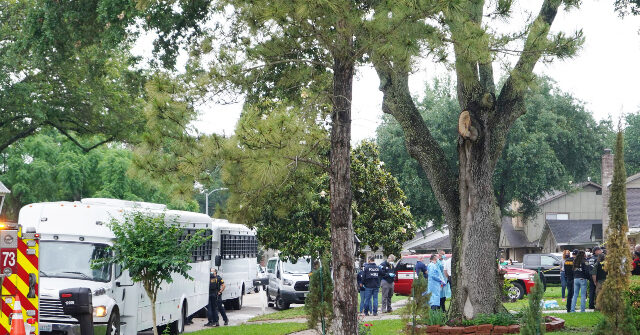In Houston, Texas, the legal proceedings surrounding the brutal deaths of two Salvadoran migrants have culminated in the guilty pleas of the last two of six human smugglers involved in the case. Efrain Rodriguez-Mendoza, a Mexican national, and Wilmar Rene Duran-Gomez, a Salvadoran national, both acknowledged their roles in the violent incidents that took place in 2006. The migrants died after being severely beaten, allegedly because they had not paid their smuggling fees. As a consequence, the two smugglers now face a potential life sentence, with sentencing hearings scheduled for March 2025.
The details surrounding the case reveal a disturbing scene. After the deaths of the two migrants, Rodriguez-Mendoza and Duran-Gomez, alongside their co-conspirator Jose Bolanos-Garza, attempted to dispose of the bodies in a heinous manner. They wrapped the deceased in blankets, doused them in gasoline, and transported them to a remote field in Fort Bend County, where they attempted to incinerate them. However, when that plan failed, the smugglers abandoned their vehicle and fled the area, which showcased not only their callousness but also the desperation to cover up their crimes.
Duran-Gomez was reported to be operating a warehouse business in Houston that served as a holding facility for migrants awaiting transportation or payment of smuggling fees. During their captivity, the migrants were segregated into two categories: those who had paid and those who had not. The unpaid migrants faced severe maltreatment, including physical beatings, denial of food and water, and a lack of basic sanitation. Many were reportedly stripped of their clothing and had their hands bound, creating a horrifying picture of the conditions the migrants endured.
Families of the detained migrants were often contacted by the smugglers, who demanded payment under the pretense of protecting their loved ones. The smugglers resorted to threats, claiming that the migrants were being beaten and would ultimately be killed if their families failed to pay the demanded fees. This manipulation of vulnerable individuals not only highlights the predatory nature of human smuggling operations but also emphasizes the risks faced by those seeking a better life.
U.S. Attorney for the Southern District of Texas, Alamdar S. Hamdani, condemned the actions of the smugglers, stating they had betrayed the trust of the victims who sought safe passage into the United States. He emphasized the brutal reality of the situation, where individuals who had hoped for a new start were instead subjected to heinous acts of violence and exploitation. The horrors inflicted by these smugglers were deemed not just criminal, but morally reprehensible within the context of human rights.
Chad Plantz, the Special Agent in Charge of Homeland Security Investigations in Houston, echoed Hamdani’s sentiments, describing the events as among the most horrific he has seen in nearly three decades in law enforcement. The case has shed light on the grotesque realities of human smuggling, exemplifying a system rife with abuse and violence against some of society’s most vulnerable individuals. As the judicial process unfolds, there is hope that the harsh penalties will serve as a deterrent against such inhuman actions in the future.

